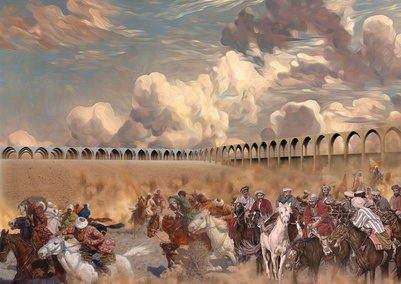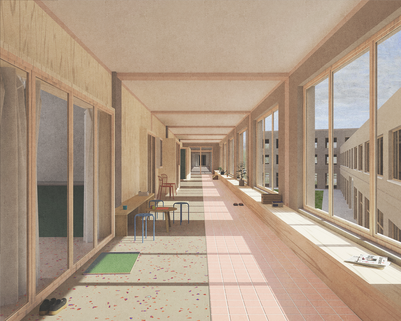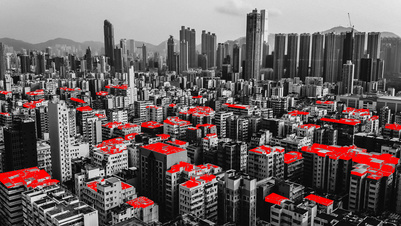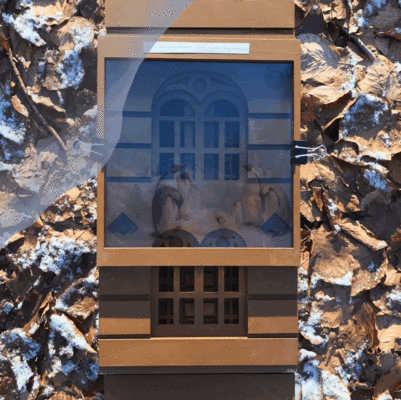Questioning the thresholds, the site transforms into a space for pre-care. By finding ways to understand Berlin’s population through a lens of intersectionality, the project aims for a more inclusive architecture of care, a space for empowerment and acceptance of precarity as a premise. By softening hard lines, an environment for giving agency while daring to perforate monumentality is introduced.
The project is a strategy towards renewed sense of belonging for all. Through fieldwork, which has been a practice of how to practice, the architect’s role is questioned. The “Master Master Planners” are known to increase the supermodern condition (Ibelings), where lavishness of space, signs, and individualism make up a world without grounding. Humans are endlessly showered with information and our territories expand because of augmented mobility. Meanwhile space itself is being reduced to zones without meaning, in which we do not care to stop and look around. Places where we can meet each other based on shared interests and values are fewer. Space lacks meaning, places are now non-places (Augé) because a place in the anthropological sense means somewhere which humans feel an attachment to. Can an outdated airport, which used to serve us the hyperglobal-citizen-of-the-world-narrative, provide something hyperlocal instead?
When talking of care, it has to do with the ethos and effect of maintenance rather than its potential for mass production. Care can be defined as everything we do to sustain, revive, and repair ‘our world’ to thrive in it as well as we can (Mattern).
“We care for things, not because they produce value, but because they already have value” – Shannon Mattern
The proposal is a path through Haupthalle (the main hall) and structures providing a variety of options for a public, cultural space. Curtain walls transform the open hall to a democratic space, where anyone can draw the curtains back and forth to adapt the space into the appropriate activity. The former airport will offer somewhere to bump into likeminded people and a space to care – for your things, for community, and for yourself. The programme includes a wood workshop and a fabric/sewing workshop – both to encourage empowerment through making something yourself with the possibility of getting help by people working on site. The interior can be pushed aside for weekend flea markets or night-time communal dinners. Some users will come for dropping off excess material for the material swapping station or to use the cultural functions, while others will make use of the path being a public street through the building to the park area behind, Tempelhofer Feld.







































